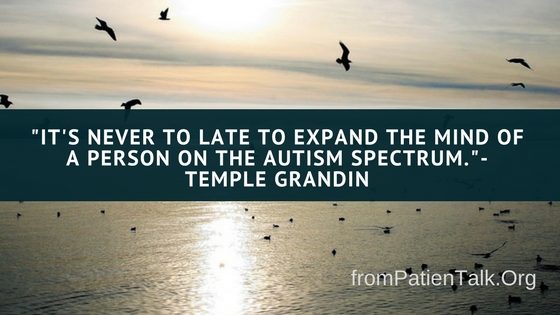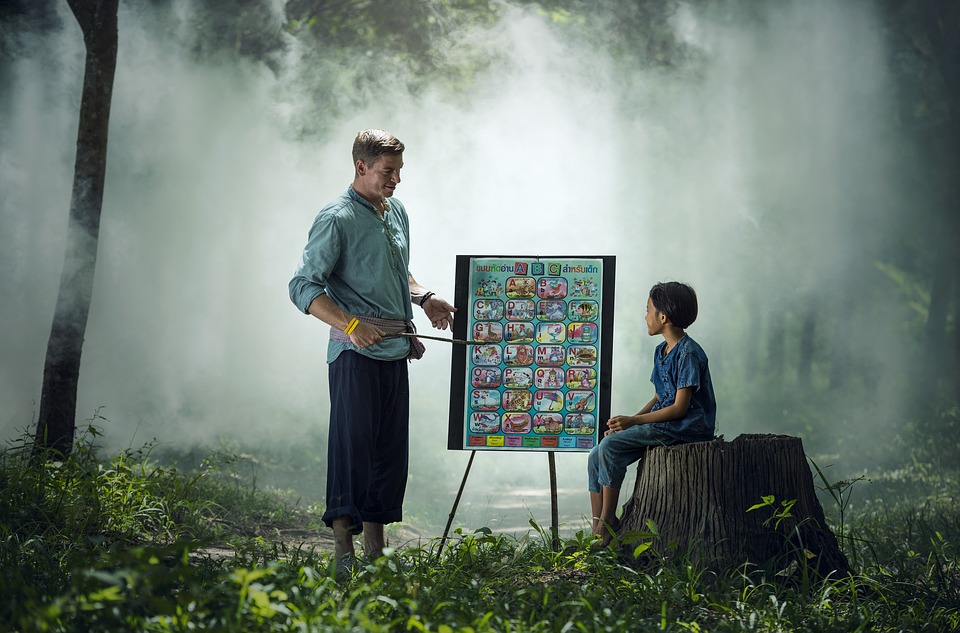What is autism and how does it affect a way a person learns? This infographic takes a look at autism and learning. It shows what obstacles people have when they’re autistic and what ways they can facilitate their education.
autism
“It’s never to late to expand the mind of a person on the autism spectrum.”- Temple Grandin
“It’s never to late to expand the mind of a person on the autism spectrum.”- Temple Grandin
Help support the education of autistic children. Please sign this letter! It will make a massive difference!
Schools and local councils don’t understand how to help autistic children learn. And parents have to fight for the support their child is entitled to. I think this needs to change.
That’s why I’ve just signed an open letter from The National Autistic Society and Ambitious About Autism as part of their #HeldBack campaign, calling for a national autism and education strategy, to make sure no child or young person is held back from achieving their potential, because they’re autistic.
I took action and added my name to the open letter to the Secretary of State for Education. Please take a minute to join me in doing so.
10 Surprising Facts about Autism and Music
Many people suspect the link between music and autism spectrum disorders, and this infographic provides some of the most interesting links between them. Data and citations are included.
For more information on music and autism therapy please go here.
Autism and ADHD – tips for surviving the holiday season
A couple of days ago I was forwarded an email by my wife from from Resources for Autism an UK based charity. Check out their website here.
Part of the email outlined a few tips and suggests for children on the autism spectrum and the upcoming Christmas holiday season.
So good are they I thought I would share with you my devoted readers!
Before the Holiday Event – prepare and plan!
Practice sitting at the table with the plates, lighting and music before any holiday gathering. Crackers are loud, scary and unnecessary but you can pull the ‘bang’ out very easily and you could always make them together, (there are loads of kits) and leave out the ‘bang’ http://www.hobbycraft.co.uk/christmas/christmas-decorations/christmas-crackers
Draw pictures about the holiday to help your child prepare for any unusual events.
Read stories together about parties and festive meals. https://www.amazon.co.uk/Armond-Goes-Party-Asperger%C2%92s-friendship/dp/1575424673 or get more help and ideas https://wordery.com/party-planning-for-children-and-teens-on-the-autism-spectrum-kate-e-reynolds-9781849052771 currency=GBP>rck=UDlwbnlzTmVtM3hCN3IxK0pLUWJ3MXd4Nm1oaE1IbU1kenBmWFZ2b3JUOThjR3BPTGhQZGRLN0JHcVZ5aG5tQlJrMXJwTDlycTJVZ3pZOXNvV3gyUFE9PQ&gclid=EAIaIQobChMIkIGRqNDS1wIVRucbCh0OAgANEAYYASABEgLCZfD_BwE
Eat holiday foods in advance to determine what your child does or does not like. (Mine loved sprouts and hated Christmas pudding!) Help them become more comfortable with the food selection.
Reflect on your holiday traditions and your child’s sensory and behaviour profile and how your child will interact with these traditions.
Prepare for the family environment. Will you be at grandma’s house? Another family member’s? Ask your host if you can have a quiet space for your child to play or to decompress if they become overwhelmed.
Prepare an alternative activity for your child. Even if it is cold perhaps take your child outside to play or have the other children play games in another room and let your child join them when they are ready. (Planning ahead really makes this easier)
Headphones at the ready if your child hates the noise.
Take your child to a small holiday-themed shop, so they can look at lights prior to setting up a Christmas tree.
Are they attracted to the lights? Or Do they have an aversion to the lights? If so, do not use lights and add ribbons, paper chains and other festive touches.
If your child likes to pull pine needles off the tree and eat them, consider an alternative, like an artificial Christmas tree or place a small one on a high table, out of reach.
Do you have glass ornaments and is your child safe with these? If not, go plastic!
If your child doesn’t have fine motor skills, practice opening gifts. For example, have your child wrap little fun objects and open them. Put gifts in bags rather than in wrapping paper and ‘hide’ them in shredded paper or cotton wool.
Put pictures on the gifts instead of names so your child can recognise everyone’s gift and join in the giving (and see they are not all for them),
Make a calendar so your child knows when the tree is coming and going to the recycle bin or getting discarded.
Count down when the gifts will be opened, “Ten days until we open gifts!”
Consider hiding gifts until it’s time to open and not bringing them all out at once.
Practice any ‘expected’ behaviours in advance, like shaking hands with a guest, placing a napkin in a lap, pulling a cracker etc.
On the day itself:
Prepare your child’s favourite foods and snacks in case they don’t like the festive meal. If you are going to another home, take your child’s favourite foods, toy, music and snacks with you.
Schedule an early dinner or eat in advance to a family get-together.
Reward your child throughout the event and reinforce positive behaviours.
Now, Next and Later really helps! “First, we will do this,” “Second, we will do this,” etc.
Assign tasks that you feel your child can manage, so they can participate on some level.
Keep your eye on your child for signs of anxiety or distress. If your child is very active take them to the park or a place where they can freely move to help them calm down.
Take great care to be sensitive to your children’s sensory issues.
Ask for help!
AND we all get over tired and over stimulated at this time of the year.
Try to keep bed time routine as near to normal as possible (for you and them) and above all have fun.
If you are stressed and exhausted your child will be too.




